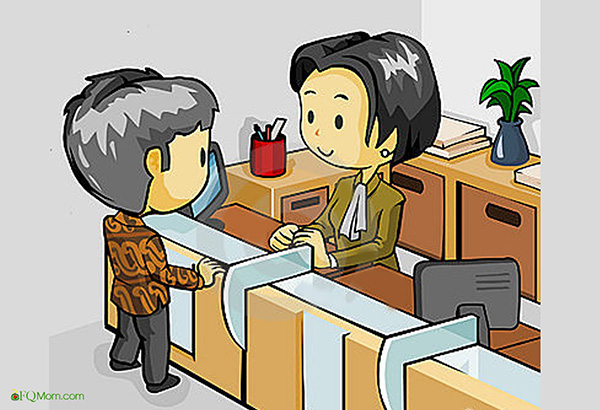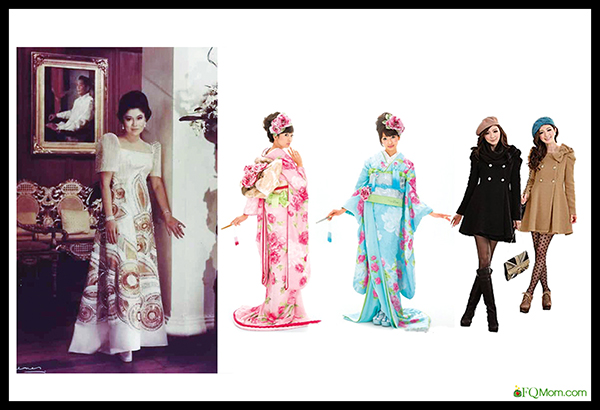Do you judge a book by its cover? I bet you do!


The adage “Do not judge a book by its cover.” is a reminder that we should not equate a person’s worth to his/her appearance. Ideally, we’d like to think that we treat all people regardless of looks, but we don’t. Here are two stories I heard recently about this human tendency.
Parish Priest goes to a wedding reception
Fr. Joel Buenviaje, in his homily last Sunday at the Celebrity Club, narrated his story.
I was the mass celebrant in a wedding and was requested to attend the reception. So I went wearing the priest’s garb with that white clerical collar…

This is the priest’s garb with a white clerical collar. Please note that this is not Fr. Joel Buenviaje. ![]()
… Upon entering the five star hotel, I was graciously welcomed with warm big smiles. At the carpark, “Magandang gabi po Father,” at the lobby, “Good evening Father, welcome to our hotel,” all the way to the reception area where I was led to a special table, “Good evening Father. We’re glad and honored that you made it. Please sit here.”
During the reception, I decided to take off the clerical collar so I was just wearing my dark polo. I noticed that from time to time, people would call me waving their hand this way (as he made the gesture of how diners would call the waiter). After the reception, I headed home and there were no more warm greetings of “Good evening Father.” Instead, someone asked me, “Saan ba yong parking dito?” Ayun napagkamalhan akong waiter kanina, ngayon naman driver!”
Checking Account Application Denied!
A few days ago my friend Kris De Guzman posted this on her Facebook timeline:
A face-to-face BPI Customer Service Conversation:
Me: What are your checking account options?
Frontliner: Why do you want to open a checking account ma'am? Kasi if the check is returned due to insufficient funds, we will have to close the account din.
Lesson: Mag-makeup bago pumunta sa BPI para hindi ka magmukhang nagpapatalbog ng tseke.

Why so?
In the first story Fr. Joel’s his tiny white clerical collar made all the difference in the treatment that he received from the respected, favored and warmly welcomed priest to a waiter and driver.
In the second story Kris not wearing make-up made the bank staff perceive her as a high-risk client, a depositor with insufficient funds. For all we know, the bank staff was just trying to be helpful by warning her about the unpleasant consequence of a bounced check; albeit, done in an inappropriate way.
In both stories the behavior of people dealing with them are greatly affected by their looks. A short dark man in black polo is more likely to be a driver. A lady in casual clothes with no make up is more likely to bounce her checks!
Are they bad judgmental people?
No. Chances are, we all have our own share of mistaking someone for a waiter, driver, saleslady, etc. and even if we are polite people in nature, there is a slight difference in the way we relate to different people. And our behavior is triggered by the information we quickly gather at first sight.
Nobel Prize winner Daniel Kahneman calls this as Cognitive Laziness. The human brain is predisposed to use heuristics (rules of thumb) to make judgments. Of course, it’s our brain’s attempt to be efficient.
Humans are very visual and we automatically take clues from what we see. The packaging of a person significantly affects our blink. Blink is a term popularized by bestselling author Malcolm Gladwell in his book Blink: The Power of Thinking Without Thinking, which refers to our judgment based on quick automatic process with little information.
Lesson from Imelda Marcos and the Japonesas
If there’s anything good I can attribute to our longest running First Lady, it is the lesson I learned from her regarding grooming. Long time ago I read her say something like this, “I dress up well whether I’m going to meet with international dignitaries or the poor people of the Philippines. It’s because it is a sign of my respect to the people I will meet.”
I also learned from Camille Meloto (co-owner of Human Nature) that the Japanese women feel the same way. Last Saturday while she was doing my make-up for a photo shoot for their company, we talked about how well dressed and well-coiffed Japanese women are. I narrated to her a story: A few years ago when we were in Tokyo in a cold December month I was lining up in a ladies’ room and when I glanced at the mirror, I was horrified to see myself as the ugliest woman in line! ![]() I was wrapped in all sorts of clothing materials all the way to my head to keep this tropical girl warm, while the rest of the ladies – a girl who was probably eight years old, a woman in her 50s all the way to a lola in her 70s - all looked so elegant and beautiful, with properly curated warm clothing pieces stylishly put together, magazine-worthy make-up and coiffure.
I was wrapped in all sorts of clothing materials all the way to my head to keep this tropical girl warm, while the rest of the ladies – a girl who was probably eight years old, a woman in her 50s all the way to a lola in her 70s - all looked so elegant and beautiful, with properly curated warm clothing pieces stylishly put together, magazine-worthy make-up and coiffure.
Camille said, “It’s because for Japanese women, it’s wrong to step out of your house not properly groomed. It’s a sign of disrespect!” In fact, Japanese etiquette forbids women from putting on make-up inside the train. It’s bad manners! Here, watch this short video:
I also feel a bit uneasy when I see women do their retouch in public – e.g. while dining in restaurants they put on lipstick or comb their hair. I would hope that they excuse themselves and go to the ladies’ room to do these rituals. However, I am guilty of sometimes doing my make-up in transit when there’s not enough time, but inside a private car, so maybe I’m excused? ![]()

We can learn a lesson from Imelda Marcos and the Japanesas
What to do
The adage Do not judge a book by its cover is an attempt to remind us not to be obsessed with looks. However, the human brain, in its attempt to efficiently use its power, takes the clues available, which are usually visual, then rapidly processes them to make a judgment. In the Gladwell book Blink, the upside of counting on these quick judgments is discussed. It is not totally superficial because the brain also retrieves information based on past experiences. In Fact, the book encourages us to use our gut feel, to listen to our intuition and act on the initial warning signs, as this can save us from a lot of dangers. (Stories of robbery, rape, etc. were narrated in the book showing how important gut feel is.)
Nonetheless, in cases where there is no imminent danger, we are better off taking our first impression a little loosely, willing to revise it when we see additional data unfold as we get to know the person more.
From the other point of view (i.e. the one being judged), make sure you look good once you step out of the house so you don’t add to the visual pollution out there! ![]() You also stand to be treated well for looking good.
You also stand to be treated well for looking good.
And so we can conclude that it’s not totally wrong to judge a book by its cover because the cover also says a lot. A great book cover implies considerable effort and seriousness in delivering the message of its content. Someone who looks presentable exerted effort in grooming because it wants to be taken seriously and it respects the people he/she will encounter.
If you ask me how come Steve Jobs, Mark Zuckeberg and other successful people dress down, it’s because “they have arrived!” Everybody knows them already and there’s no danger of being “discounted” because of their less than well-groomed looks. The human mind already knows about their capabilities. (Note that Steve Jobs used to dress up in suits during his presentations in his early days to be taken seriously.)
So for regular mortals like us who have “not yet arrived,” we’re better off heeding the advice of Imelda and the Japonesas. I believe that we don’t only owe this to the people we will interact with, but also to ourselves. We owe ourselves that effort of grooming that will translate to better treatment from the people around us.
Cheers to looking good!
*********************************************
Want to know your FQ Score, click link to take the test. Your feedback is welcome.

Rose Fres Fausto is a speaker and author of bestselling books Raising Pinoy Boys and The Retelling of The Richest Man in Babylon (English and Filipino versions). Click this link to read samples - Books of FQ Mom Rose Fres Fausto. She is a Behavioral Economist, Certified Gallup Strengths Coach and the grand prize winner of the first Sinag Financial Literacy Digital Journalism Awards. Follow her on Facebook and You Tube as FQ Mom, and Twitter & Instagram as theFQMom.
Attribution: Photos from thumbs.dreamstime.com, i.ebayimg.com.com, Shutterstock, thumbs.dreamstime.com, Pinterest put together to deliver the message of the article.
Tags: Looks, cognitive laziness, Daniel Kahneman, Blink, Malcolm Gladwell, judging a book by its cover, grooming


















